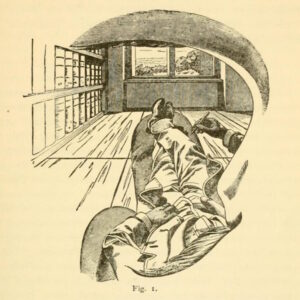Editorial by Daily Mirror

From daily hot showers to brushing schedules, some so-called good habits might actually be bad for you
We all know we should stop smoking, ditch junk food and cut out excessive
drinking, but there are other seemingly good habits you should tackle in your
daily routine, too
1 Showering daily with hot water
“Most people wash far too much, using piping hot water which combined with
harsh soaps, strip the skin of oils, resulting in dryness, cracking and even
infection,” consultant dermatologist Dr Nick Lowe says. Skipping showers
actually gives your skin some time to repair and replenish natural oil levels,
he adds, while having a cooler shower stops the oils in your skin from running
off down the plughole.
2 Sleeping in
The notion of getting eight hours of solid sleep could actually leave you
feeling more exhausted than those who live with whatever they can grab,
according to Professor Jim Horne at Loughborough University’s Sleep Research
Centre. “We’ve evolved to have flexible sleep patterns, and fragmented sleep,
including daytime napping, can actually be a benefit,” Horne says.
3 Sitting
Nobody ever thought sitting at a desk for hours would do you any good, but the
list of negatives might make you think twice about working through your lunch
break.
“When muscles, especially the big ones meant for movement, like those in your
legs, are immobile, your circulation slows and you burn fewer calories,”
explains chartered physiotherapist Sammy Margo. Enzymes responsible for
breaking down harmful blood fats start switching off, she says.
4 Breathing
Ask anyone to take in a deep breath and they will no doubt puff out their chest
as they inhale. Wrong, says Neil Shah, director of The Stress Management Society.
“With chest breathing, we can’t suck in enough fresh air as our lungs have a
finite capacity —and it’s the bottom section of the lungs that contains the
most efficient blood vessels for gas exchange.” Instead, try to “inflate” your
stomach as you breathe in while keeping your chest relatively still.
5 Relaxing after dinner
We’ve all been there — you get home, eat and then relax on the sofa for an hour
before heading off to bed. “If you’re generally inactive during the evening
when you have your main meal, your body’s more likely to lay down that food as
fat,” says Claire MacEvilly, nutritionist at MRC Human Nutrition Research
laboratory in Cambridge. “If you take a brisk walk after dinner, there’s no
reason at all why eating your evening meal at 9 pm will make you put on
weight.”
6 Brushing your teeth after meals
“As we sleep, bacteria and plaque form on our teeth,” explains dental surgeon
Dr Philip Stemmer. “The bacteria are then multiplied by the sugar and acid in
our breakfast food, which increases the risk of tooth decay. Brushing before
you eat removes these bacteria. The best routine is to brush your teeth before
meals, and then freshen up and remove excess food after eating using an
alcohol-free mouthwash.”
7 Wearing total sunblock
Cancer Research UK recently recommended spending short spells exposed to
sunlight to increase our levels of vitamin D. Alongside bone disease in
children, a deficiency has been linked to cardiovascular disease, Type 2
diabetes and several cancers, as well as adult bone softening. Although vitamin
D can be obtained in small quantities by eating oily fish, eggs and liver,
about 80 per cent of what the body needs is obtained when sunlight is absorbed
by the skin. Nick Lowe says: “When you’re going out into the sunshine for
prolonged periods, don’t bother with anything over 30 as it’s far messier, it
offers negligible benefits and you’re much less likely to use it regularly.”.





